Frame
The Cities research cluster examines new forms of urban change, politics and transformation, with a focus on rapidly urbanizing cities of the Global South. It seeks to document and study new urban spatial forms, covering a variety of aspects, including, but not limited to cartographies, economies, politics, social structures, and urban cultural life.
Context
Pakistan’s rapid urbanization has resulted in major challenges. The urban population has been growing 3 % annually, as citizens in the suburbs and rural areas are moving to cities faster than any other country in South Asia. Projections suggest that more than half of Pakistan’s estimated 250 million citizens are expected to live in cities by 2030.
Research Problems
Within Pakistan specifically, the following research questions play a key role in shaping the cluster’s research activities and points of inquiry:
- Urban local governance, with an emphasis on political participation, mobilisation, and state-society relations;
- Urban inequality and challenges around informality, service provision, planning and infrastructure development, including links with urban public finance;
- Environmental sustainability, including economic and environmental costs of rapid urban growth;
- Urban violence and insecurity;
- Gender, class and ethnicity are considered as cross-cutting themes, and remain central to our research. We rely on an interdisciplinary approach, at the intersection of sociology, anthropology, economics, history, and urban studies and planning.
Related Fellows

Zebunnisa Hamid is an Assistant Professor of Film Studies at the Mushtaq Ahmad Gurmani School of Humanities and Social Sciences, LUMS. Dr. Hamid’s research focuses on gender and the crisis of masculinity, the transnational city and urban spaces on screen, and the industries of small cinemas. She is developing the concept of the ‘transnational cinematic city’ where these streams connect and interact with each other.
Dr. Hamid is currently working on her book on New Pakistani Cinema in which she explores the concept of the ‘transnational cinematic city further. Zebunnisa has trained as a film editor at The Edit Centre in New York and worked as a production consultant on Mira Nair’s film, The Reluctant Fundamentalist (2012). She has also served on Pakistan’s Oscar committee to select the country’s official submission for the International Feature Film Award category at the Academy Awards.
Dr. Hamid received her doctorate in Film Studies from SOAS, University of London, in 2017. She has a MA in Journalism from Goldsmiths, University of London, and a BA from New York University (NYU).
After completing her Ph.D., Dr. Hamid held the position of Research Associate at SOAS and was a Postdoctoral Fellow at LUMS.
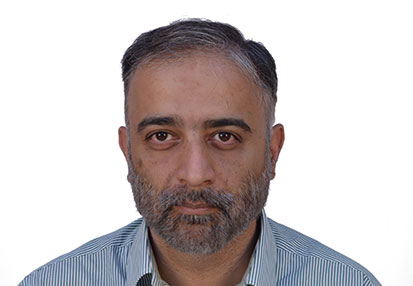
Dr. Syed M Hasan is Assistant Professor in the Department of Economics, LUMS. His primary research interest and teaching field is urban and regional economics and public economics. Dr. Hasan obtained his PhD in Economics from Ohio State University in 2014. His doctoral research focused on spatial policy instruments and firms productivity. Under the broad theme of sustainable development, Dr. Hasan also has interest in research on resilient cities. In this context his research focuses on areas related to water conservation, economic cost of congestion and energy choices by households and related carbon emissions in large urban centers of Pakistan. Dr. Hasan has several publications in international peer-reviewed journals. In 2007 he did he master’s in public finance from GRIPS, Tokyo, Japan. Prior to joining the academia, Dr. Hasan has worked in the civil service of Pakistan.
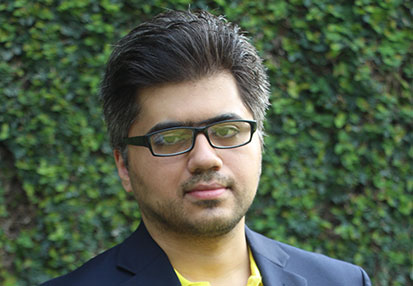
Dr. Adeel Tariq is an Assistant Professor of Economics at the Lahore University of Management Sciences. A Fulbright Scholar, he holds a PhD in Economics from Binghamton University, MSc in Economics from the Lahore University of Management Sciences, an MBA from the Lahore School of Economics and a BSc (Hons) in Economics & Management from the University of London. His research interests include the analysis of firm-level productivity and efficiency, the role of information frictions in emerging markets, housing affordability in developing countries and labor market dynamics.
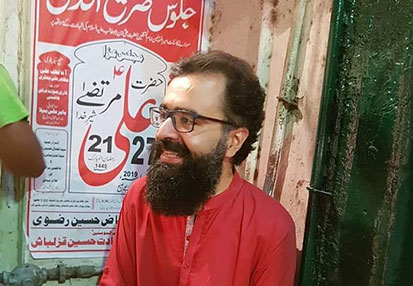
Ali Usman Qasmi is an Associate Professor of History at the School of Humanities and Social Sciences at LUMS since 2012. He received his PhD from the South Asia Institute of Heidelberg University in 2009. Before joining LUMS, he was a Newton Fellow for post-doctoral research at Royal Holloway College, University of London. He has published extensively in reputed academic journals such as Modern Asian Studies and Journal of Islamic Studies. He is the author of Questioning the Authority of the Past: The Ahl al-Qur’an Movements in the Punjab (Karachi: Oxford University Press, 2011), and his second monograph, The Ahmadis and the Politics of Religious Exclusion in Pakistan (London: Anthem Press, 2014), was the recipient of Karachi Literature Festival (KLF) Peace Prize in 2015.

Ghazal Asif is an Assistant Professor of Anthropology at LUMS. Her research and teaching focus on postcolonial regimes of legality and governance; domesticity, kinship, and gender; and everyday life, memory, and identity in multi-ethnic and multi-religious societies. Using in-depth ethnographic and archival methods, Ghazal’s research examines how the Hindu religious minority in Sindh navigates the contemporary regulation of difference and identity in a modern Muslim polity. She focuses on everyday practices of political claim-making and the management of domestic relations by Hindu women.
Ghazal holds a doctoral degree in Cultural Anthropology from Johns Hopkins University. Her dissertation research has been supported by the Wenner-Gren Foundation, the Social Science Research Council, and the American Institute of Pakistan Studies; and received the Honorable Mention for the 2021 S.S Pirzada Dissertation Prize in Pakistan Studies.
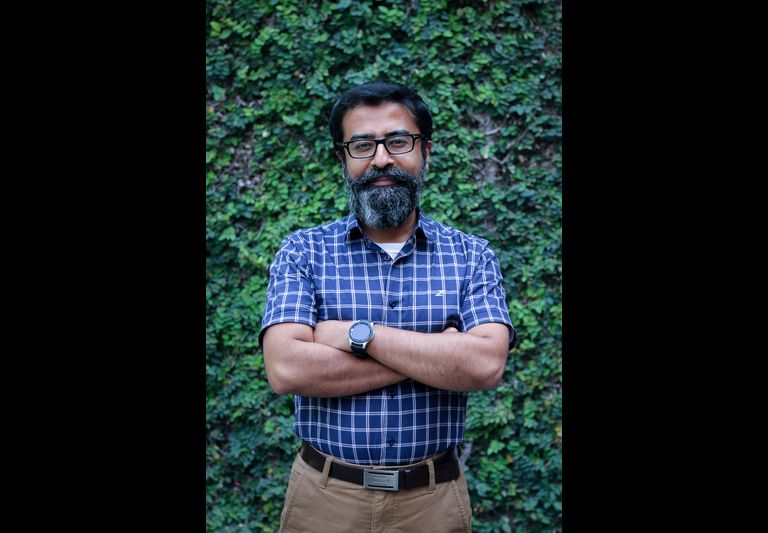
Momin Uppal is a tenured associate professor of electrical engineering at Lahore University of Management Sciences. He received his Ph.D. and MS in Electrical Engineering from Texas A&M University in 2010 and 2006, respectively. Earlier, he received his BS in Electronic Engineering with the highest distinction from GIK Institute of Engineering Sciences, Pakistan in 2002. At LUMS, he serves as the director of the Advanced Communications (AdCom) Lab and the Smart Data Systems and Applications (SDSA) Lab. He has published over 50 papers in leading IEEE Journals and Conferences and has two US patents to his name. During his time at LUMS, he has secured research funding from national and international agencies including Ignite (formerly National ICT R&D Fund), Higher Education Commission (HEC) of Pakistan, National Instruments, and United Kingdom’s Grand Challenges Research Fund (GCRF). He is currently leading an Rs. 220 million multi-PI project from the HEC that broadly deals with the use of technology and data-driven decision-making to save our cities. His research interests lie in urban computing, statistical signal processing, machine learning for wireless communications, back-scatter communications, and environmental sensing using radio signals.
Momin is the recipient of the LUMS’ Vice Chancellor’s Teaching Excellence Award 2021 (university-wide award), and the LUMS’ Department of Electrical Engineering Distinguished Teaching Award 2019. He has also been nominated by LUMS for the HEC Best University Teacher Award 2021 (national award).
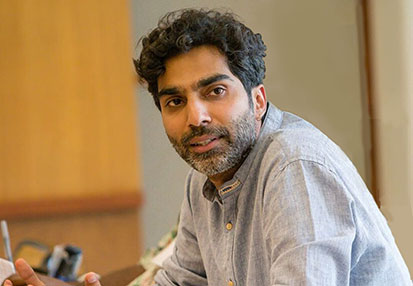
Amen Jaffer is a sociologist trained in urban ethnography whose teaching, research and advising interests lie in the fields of religion, urban studies, sociality, everyday life, difference and social control, social theory, political economy of waste and recycling, and the politics of space and infrastructure.
He is currently working on three projects. One is a comparative ethnography of urban citizenship in low-income neighborhoods of Lahore which explores poor residents’ engagements with the infrastructures of their neighborhoods as practices of forging political communities.The second project is a book manuscript that explores practices of sociality in South Asian Sufi shrines. It focuses on ordinary practices in these spaces – conversations, humour, collective preparation and consumption of food and drugs, etc – to demonstrate how an everyday spirituality is constructed through routine practices in these spaces. The third project, for which he is currently conducting fieldwork, investigates the social organization of the waste and recycling economy in Lahore by focusing on scrap yards run by Afghan refugees and jhuggi settlements of low-caste nomadic communities.
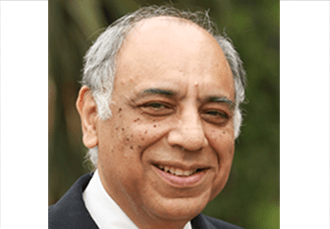
Dr. Anjum Altaf obtained a MA in Economics and a PhD in Engineering-Economic Systems both from Stanford University. He was affiliated with the Applied Economics Research Center at the University of Karachi and with the University of North Carolina at Chapel Hill in the departments of City and Regional Planning and Environment and Public Health. After working at the World Bank in the Research department and the East Asia Urban Development programme with a focus on China and Vietnam, he joined LUMS as Professor of Economics and Dean of the School of Humanities, Social Sciences and Law. He was subsequently Vice-President and Provost at the newly established Habib University in Karachi.
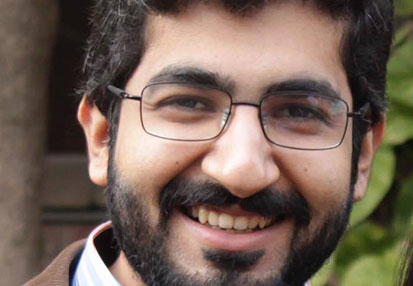
Dr. Umair Javed is Assistant Professor of Politics and Sociology at the Mushtaq Gurmani School of Humanities and Social Sciences (MGSHSS). He completed his PhD at the London School of Economics and Political Science (LSE) in 2018, where he was a recipient of the LSE Centennial PhD Studentship.
His doctoral research focused on politics and practices of accumulation, and labour relations in Pakistan”s informal economy, with a specific focus on the retail-wholesale (bazaar) sector. More broadly, his research interests span various aspects of political participation, socio-economic development, and urban public life in South Asia. His academic work has been published in Economic and Political Weekly, Current History, and Catalyst’: >- A Journal of Theory and Strategy. He has also contributed book chapters to volumes published by Routledge, Cambridge University Press, and the Australian National University Press. He is currently working on a cross-country study of contentious mobilisation around energy access in low-income settlements in Pakistan, Mozambique, and Nigeria, with researchers at the Institute of Development Studies (IDS), University of Sussex.
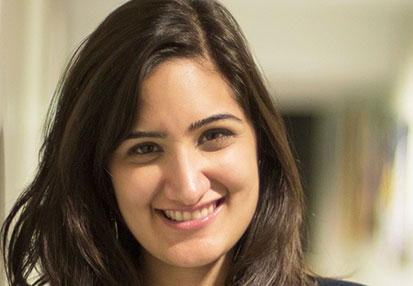
Fizzah Sajjad is a PhD candidate at the Department of Geography and Environment, London School of Economics and Political Science (LSE). She is an urban planner with nine years of research and project management experience. She previously worked as Director Research and Policy at the Mahbub ul Haq Research Centre. Her research interests focus on questions of land, housing, transport, and the politics of infrastructure development. She has worked on affordable housing development, gender equity in transport planning, and dispossession in rapidly urbanizing cities of the Global South. Fizzah holds a Masters in City Planning from MIT, with a specialization in International Development Planning.
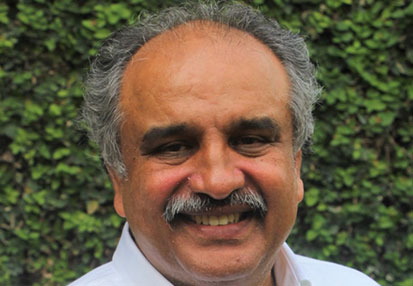
Dr. Kamran Asdar Ali is a professor of Anthropology, Middle East Studies and Asian Studies at the University of Texas, Austin. He served as Dean of the Mushtaq Ahmad Gurmani School of Humanities and Social Sciences (MGSHSS) at LUMS from 2017-2020. He has previously taught at the University of Rochester (NY), has been a member of the Institute for Advanced Study at Princeton (1998-99), ISIM, University of Leiden (2005) and a fellow at the Institute for Advanced Study Berlin (2010-2011).
He has conducted field research in Mexico, Egypt and in Pakistan on issues pertaining to health and gender, ethnicity, class politics, sexuality and popular culture. Among his other publications, he is also the author of Planning the Family in Egypt: New Bodies, New Selves (2002) and the co-editor of Gendering Urban Space in the Middle East, South Asia and Africa (2008), Comparing Cities: Middle East and South Asia (2009) and Gender, Politics, and Performance in South Asia (2015). His most recent book is Communism in Pakistan: Politics and Class Activism 1947-1972 (2015).
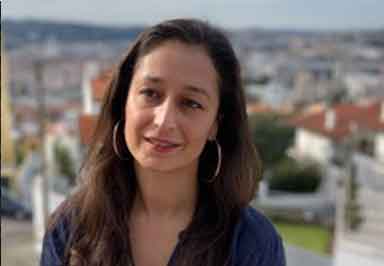
Dr. Shandana Khan Mohmand is Research Fellow in the Governance cluster at the Institute of Development Studies (IDS) at the University of Sussex.
She has over 18 years of experience teaching undergraduate, graduate, and professional training courses.
As a social scientist, her research has increasingly focused on the relationship between political participation, inequality and accountability and her research interests include democratisation, local politics, and the political economy of public policy and service delivery.
She has a D.Phil in Development Studies and a Masters in Governance and Development from IDS, University of Sussex. She also holds a Masters in Sustainable International Development from Brandeis University (USA) and a BA in Political Science and Economics from McGill University (Canada).
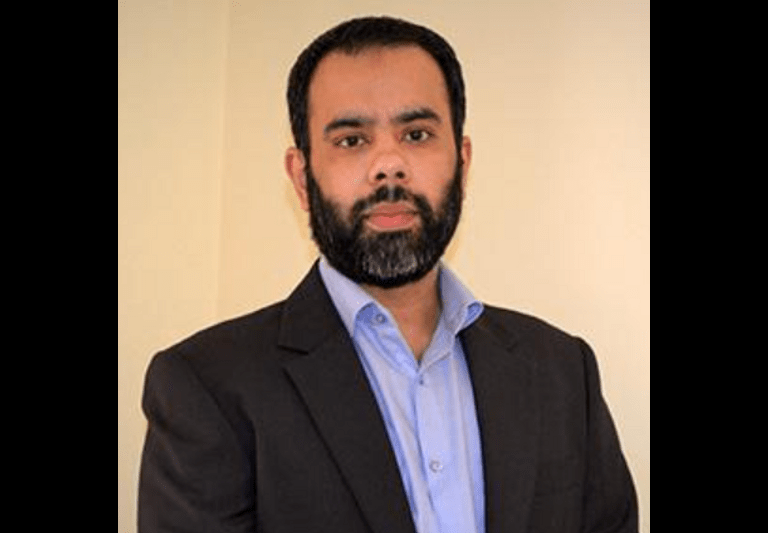
Zubair Khalid is an Associate Professor at the Syed Babar Ali School of Science and Engineering, LUMS. Dr. Khalid’s research is focused on the development of new signal processing techniques to analyze signals defined on the sphere, analysis and processing of signals defined on the sphere find applications in various fields of science and engineering, such as cosmology, geophysics, acoustics, and medical imaging.
Dr. Khalid was awarded University Gold Medal and Industry Gold Medals from Siemens and Nespak for overall outstanding performance in Electrical Engineering during his undergraduate studies. Additionally, he was a recipient of an Endeavour International Postgraduate Award for his Ph.D. studies.
Dr. Khalid received his Ph.D. degree in Engineering from the Australian National University of Canberra, Australia in 2013
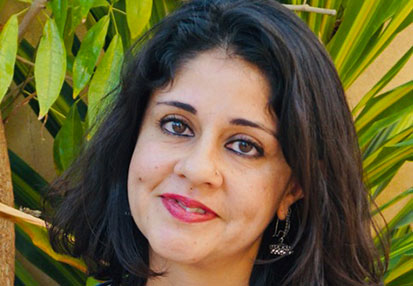
Dr. Nida Kirmani is Associate Professor of Sociology in the Mushtaq Ahmad Gurmani School of Humanities and Social Sciences at the Lahore University of Management Sciences. She is also Faculty Director of the Saida Waheed Gender Initiative. Nida has published widely on issues related to gender, Islam, women’s movements, development and urban studies in India and Pakistan. She completed er PhD in 2007 from the University of Manchester in Sociology. Her book, Questioning ‘the Muslim Woman’ Identity and Insecurity in an Urban Indian Locality, was published in 2013 by Routledge. Her current research focuses on urban violence, gender and insecurity in the area of Lyari in Karachi.
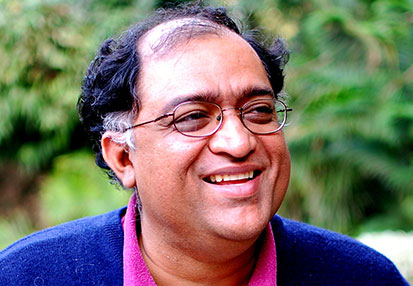
Ali Cheema serves as the Director of the Mahbub Ul Haq Research centre, and is an Associate Professor of Economics at the Mushtaq Ahmad Gurmani School of Humanities and Social Sciences, LUMS. Cheema is also a Senior Research Fellow at IDEAS Pakistan, co-founder of the centre for Economic Research in Pakistan (CERP), and a co-lead academic of the International Growth centre’s Pakistan programme. He is a member of the Board of Trustees of the Institute of Development Studies, Sussex and was the Chair of the Economics Department at LUMS from 2004-2010. He was also a founding member of the Stockholm Challenge Award winning portal, Relief Information System for Earthquakes, Pakistan (RISEPAK).
His areas of research include economic development with a focus on human capital, inclusion and economic mobility, gender, public economics, comparative politics, economic history, and the economics of crime. His research combines extensive mixed-methods fieldwork, historical archival research, rigorous empirical analysis, and theory to offer insights into how political economy and historical foundations shape economic and political development. He holds a Ph.D. in Economics from Cambridge, an MPhil in Economics and Politics from Cambridge, a BA (Hons.) in Philosophy, Politics, and Economics (PPE) from Oxford where he was a Rhodes Scholar, and a BA in Mathematics and Statistics from Government College, Lahore. He was a visiting Fulbright and SAI Scholar at Harvard Kennedy School from 2010-11.
His areas of research include economic development with a focus on human capital, inclusion and economic mobility, gender, public economics, comparative politics, economic history, and the economics of crime. His research combines extensive mixed-methods fieldwork, historical archival research, rigorous empirical analysis, and theory to offer insights into how political economy and historical foundations shape economic and political development. He holds a Ph.D. in Economics from Cambridge, an MPhil in Economics and Politics from Cambridge, a BA (Hons.) in Philosophy, Politics, and Economics (PPE) from Oxford where he was a Rhodes Scholar, and a BA in Mathematics and Statistics from Government College, Lahore. He was a visiting Fulbright and SAI Scholar at Harvard Kennedy School from 2010-11.
Dr. Ali Cheema is part of the board of directors for the State Bank of Pakistan since July 2022.
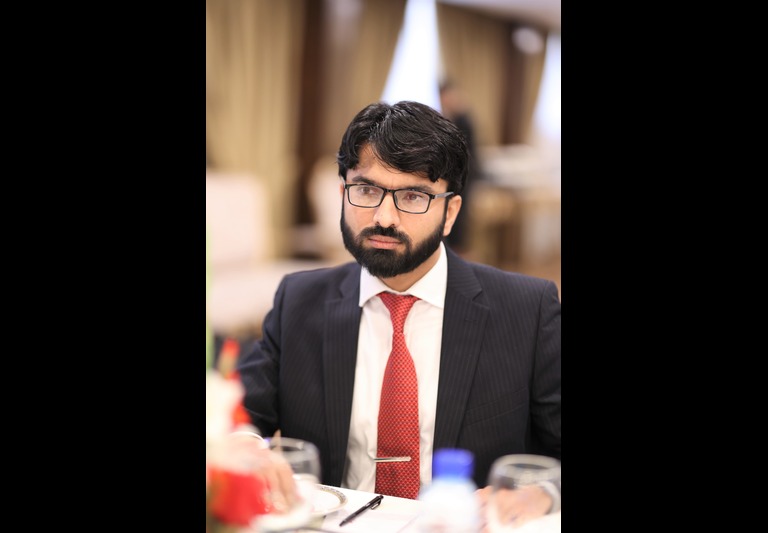
Usama Khawar currently serves as the Assistant Advocate General, Punjab at the Office of Advocate General Punjab, where he contributes to legal advocacy and policy formulation. In addition, he holds the role of adjunct faculty at the Shaikh Ahmad Hassan School of Law (SAHSOL) at LUMS, teaching courses on constitutional law and policy.
With a multifaceted approach to legal advocacy, Usama has demonstrated a profound interest in labor law and policy. His extensive litigation and advocacy efforts before the Supreme Court of Pakistan have led to significant advancements in the field of occupational safety and health (OSH), especially in the Punjab. Notably, his contributions played a pivotal role in the formulation of a comprehensive law on occupational safety and health in the province. As a testament to his expertise in this area, Usama authored a comprehensive report on OSH, published by the Human Rights Commission of Pakistan (HRCP).
In addition to his work in labor law and policy, Usama has been actively involved in advising the Punjab Government and Provincial Assembly on matters related to Local Government Law and Prison Reforms. He has been appointed to official committees constituted by the Punjab Government, where his insights and recommendations have informed key policy decisions.
Usama's research interests extend beyond labor law to encompass justice system reforms, policing, and local governance. He is a regular contributor to DAWN, a leading national newspaper, where he shares his insights on legal and policy matters. Additionally, Usama frequently appears on television programs to discuss pertinent issues related to law and policy, further amplifying his impact on public discourse.
Educationally, Usama holds a Master's degree from Columbia University, where he specialized in constitutional law. He further enriched his academic pursuits by obtaining another Master's degree from Central European University in Comparative Constitutional Law, solidifying his expertise in legal and policy domains.
In his capacity as a legal professional, Usama has actively championed the cause of local governments in Pakistan for over six years, engaging in litigation, organizational endeavors, and the creation of a groundbreaking course on Local Governments in Pakistan. His multifaceted contributions reflect his unwavering dedication to advancing democratic principles, social justice, and labor rights in the country.
Postal Address
LUMS
Sector U, DHA
Lahore Cantt, 54792, Pakistan
Office Hours
Mon. to Fri., 8:30 a.m. to 5:00 p.m.

